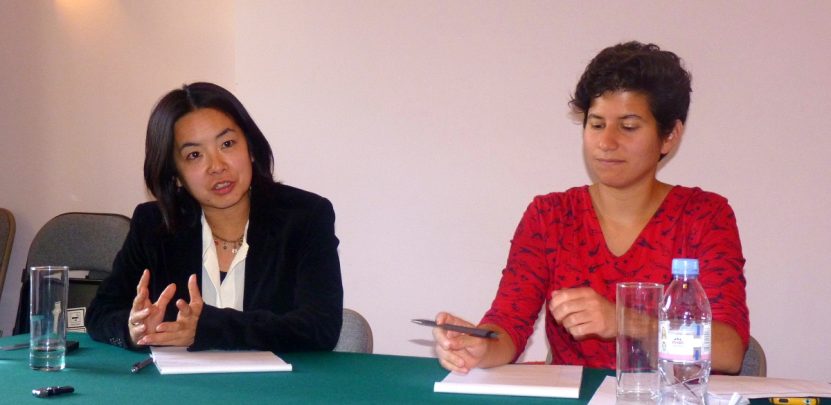 Seminar
SeminarThursday 28 May 2015
6:00pm – 7:00pm
The Sandwich Generation: Women with Work and Double Care Responsibilities
Drinks reception from 8:00pm
13/14 Cornwall Terrace (Outer Circle, facing Regent's Park), London NW1 4QP
Organised by the Daiwa Anglo-Japanese Foundation
Balancing care responsibilities and work is becoming increasingly difficult: a ‘sandwich generation’ is emerging, whose members are providing care both for their children or grandchildren, and for their elderly parents, often while continuing to earn and pursue their careers.
Based on comparative international research projects, Junko Yamashita of the University of Bristol discussed care for elderly relatives and children, and how the experiences of women in the sandwich generation in Japan and East Asia are shaped by government policies, social and cultural contexts and family relationships. Japan is a prime example of a society facing acute demographic and social changes; the ageing population, the decrease in the average number of siblings and the rising average age at which women have children all suggest that there is added pressure for women in the sandwich generation to provide care simultaneously for frail elderly relatives and young children.
Giselle Cory of the Institute of Public Policy Research provided an overview of trends in work and caregiving that are affecting the lives of older women in the UK. While her work focuses on the position and experiences of older women in the workplace, and the influence that the economic crisis has had on their lives, it also examines the inequalities that underlie the way that older women are – or rather, are not – represented in politics, business and the media. She also discussed how more progressive policies on parental leave and flexible working, and innovative reciprocal time-banking schemes, could enable older women (and men) to balance longer and more fulfilling working lives with better-supported caring responsibilities.
;
About the contributors

Junko Yamashita
Junko Yamashita is a Lecturer at the School of Sociology, Politics and International Studies at the University of Bristol. She has an MA in Sociology from the University of Tokyo and a Ph.D. in Social Policy from the University of York. Her expertise is in comparative analysis of East Asian and European welfare regimes, especially in relation to care and gender. She also has a long-standing interest in civil society, particularly the roles and functions of non-profit organisations and people participating in their activities. From 2008-10 she was General Secretary of the East Asian Social Policy (EASP) research network, which promotes analysis and exchange of research on East Asian social policy. Her research has appeared in journals including Social Policy and Society, The Journal of International and Comparative Social Policy, and Social Science Japan Journal. She is co-author of Care, Cooperative Work and Unpaid Work: Unsettled Boundary of Labour (with Nihei, N., Ōtsuki Shoten, in Japanese).

Giselle Cory
Giselle Cory is a Senior Research Fellow at the Institute for Public Policy Research, a UK-based progressive think tank. She specialises in policy relating to childcare, skills and the labour market, with a focus on gendered analysis. Prior to this, she worked on these issues at the Resolution Foundation, a think tank focusing on low- to middle-income households in the UK. Prior to joining the Resolution Foundation, she was at the Prime Minister’s Delivery Unit (HM Treasury) and the Prime Minister’s Strategy Unit (Cabinet Office). Cory has an undergraduate degree in physics and mathematics, a diploma in manned spaceflight and a graduate diploma in economics. She has conducted research in Malawi on youth issues and in Mexico on nuclear physics, and is a former member of the government’s independent crime statistics advisory committee. She is a regular contributor to blogs and appears on broadcast media.